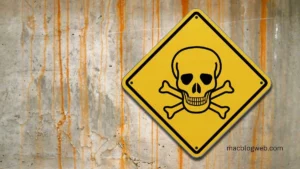In the hallowed annals of rock and roll history, few songs have left an indelible mark as profound as “All Tomorrow’s Parties Meaning” by The Velvet Underground, featuring the hauntingly enigmatic vocals of Nico. Released in 1967 on their seminal debut album, “The Velvet Underground & Nico,” this track has transcended time and genre, leaving listeners intrigued and mystified by its cryptic lyrics and haunting melody. In this article, we embark on a journey to unlock the secrets behind “All Tomorrow’s Parties Meaning” and explore its meaning.
Like many great works of art, “All Tomorrow’s Parties Meaning” resists a singular interpretation. Instead, it serves as a multi-faceted mirror reflecting various facets of human existence. At its core, the song explores themes of society, identity, and the fleeting nature of existence.
A Snapshot of an Era
The Velvet Underground emerged in the 1960s, a decade of immense social change and cultural upheaval. The band, led by Lou Reed and John Cale, was known for its avant-garde approach to music, blending rock with experimental and often provocative themes. The addition of Nico, a German singer, added a unique, ethereal quality to their sound.
“All Tomorrow’s Parties Meaning” stands out as a haunting and melancholic reflection of the times. Its lyrics, written by Lou Reed, delve into the lives of those on the fringes of society, capturing a sense of alienation and existential dread that was prevalent in the counterculture movement.
Social Stratification and Class Divide
The song’s lyrics offer a stark portrayal of social stratification and the contrast between the haves and have-nots. The “rich lady” in her “elegant clothes” juxtaposed with the “poor little girl” reveals a sharp critique of the class divide. This division is symbolized by the stark contrast between the glamorous parties of the elite and the desolation experienced by the marginalized.
The opening lines set the tone:
“And what costume shall the poor girl wear
To all tomorrow’s parties
A hand-me-down dress from who knows where
To all tomorrow’s parties.”
Here, the “poor girl” is forced to wear a hand-me-down dress, highlighting her lack of resources and societal status. The use of “costume” suggests a performance or a facade, indicating that the girl must adopt a guise to fit in with the expectations of society.
The Transience of Existence
“All Tomorrow’s Parties Meaning” invites listeners to contemplate the transient nature of life. The refrain, “And what costume shall the poor girl wear, to all tomorrow’s parties Meaning,” suggests the impermanence of human existence. We all don different “costumes” or personas throughout our lives, adapting to the expectations and norms of society.
The repeated question about the “costume” emphasizes the recurring need for adaptation and the constant flux of identity. This can be seen as a commentary on the pressures individuals face to conform and the ephemeral nature of social status.
Identity and Self-Perception
The song delves into the complexities of identity and self-perception. The “poor girl” is not defined by her true self but by the costumes she wears and the roles she plays. This theme resonates with the existential notion that our identities are not fixed but are constantly shaped by external influences and our interactions with the world.
The haunting quality of Nico’s vocals adds to this sense of existential angst. Her voice, described as cold and distant, enhances the feeling of detachment and alienation. It’s as if the “poor girl” is not only alienated from society but also from herself.
A Critique of Materialism
“All Tomorrow’s Parties Meaning” can also be interpreted as a critique of materialism and the superficial values of society. The focus on elegant clothes and glamorous parties highlights the emptiness of a life driven by material wealth and social status. The “poor girl,” despite her lack of material possessions, is portrayed with a sense of dignity and resilience.
The repeated emphasis on “tomorrow’s parties” suggests a never-ending cycle of superficial social events, devoid of deeper meaning or fulfillment. This critique aligns with the counterculture movement of the 1960s, which often challenged the materialistic values of mainstream society.
The Influence of Andy Warhol
Andy Warhol, the iconic pop artist, played a significant role in the creation and promotion of The Velvet Underground & Nico. Warhol’s influence is evident in the song’s exploration of themes such as identity, consumerism, and the superficiality of modern life. Warhol’s fascination with fame, artifice, and the fleeting nature of popular culture is mirrored in the song’s lyrics.
Warhol’s presence in the band’s orbit added an additional layer of complexity to their music. His experimental approach to art and his interest in the darker aspects of human nature undoubtedly influenced the thematic depth of “All Tomorrow’s Parties Meaning.”
A Personal Reflection
Lou Reed’s songwriting often drew from personal experiences and observations. “All Tomorrow’s Parties Meaning” may also be seen as a reflection of his own struggles with identity and societal expectations. Reed, known for his candid exploration of taboo subjects, used his music as a vehicle to challenge norms and provoke thought.
The song’s melancholic tone and introspective lyrics suggest a deeply personal connection. It’s as if Reed is grappling with his own sense of self and the roles he must play in the world.
The Cultural Impact
Since its release, “All Tomorrow’s Parties Meaning” has had a profound impact on music and popular culture. Its haunting melody and enigmatic lyrics have inspired countless artists and musicians. The song’s influence can be seen in various genres, from rock and punk to alternative and indie music.
The Velvet Underground’s willingness to push boundaries and explore uncomfortable truths has left a lasting legacy. “All Tomorrow’s Parties” continues to resonate with listeners, offering a timeless reflection on the human condition.
Modern Interpretations
In contemporary times, “All Tomorrow’s Parties Meaning” has been covered and interpreted by numerous artists, each bringing their own perspective to the song. These modern interpretations highlight the song’s enduring relevance and its ability to speak to different generations.
Some artists have emphasized the song’s melancholic and introspective qualities, while others have focused on its critique of societal norms. This diversity of interpretations underscores the song’s multifaceted nature and its capacity to evoke a wide range of emotions and ideas.
The Legacy of The Velvet Underground & Nico
The Velvet Underground & Nico, as an album, has achieved iconic status in the history of music. Its experimental approach, raw sound, and bold themes have influenced countless musicians and shaped the evolution of rock music.
“All Tomorrow’s Parties Meaning” stands as a testament to the band’s innovative spirit and their willingness to tackle complex and often controversial subjects. The album’s blend of avant-garde art and rock music has cemented its place as a seminal work in the canon of popular music.
Conclusion
“All Tomorrow’s Parties Meaning” by The Velvet Underground is more than just a song; it’s a profound exploration of human existence, societal norms, and the ephemeral nature of life. Its haunting melody and enigmatic lyrics continue to captivate and intrigue listeners, offering a timeless reflection on the complexities of identity and the pressures of conformity.
As we delve into the layers of meaning within the song, we uncover a rich tapestry of themes that resonate with our own experiences and struggles. “All Tomorrow’s Parties” invites us to reflect on the roles we play, the costumes we wear, and the fleeting nature of our existence. In doing so, it reminds us of the power of music to illuminate the human condition and to challenge us to see the world through a different lens.
The Velvet Underground’s legacy, and the enduring impact of “All Tomorrow’s Parties,” serves as a testament to the transformative power of art and the enduring relevance of their music in our ever-changing world.








